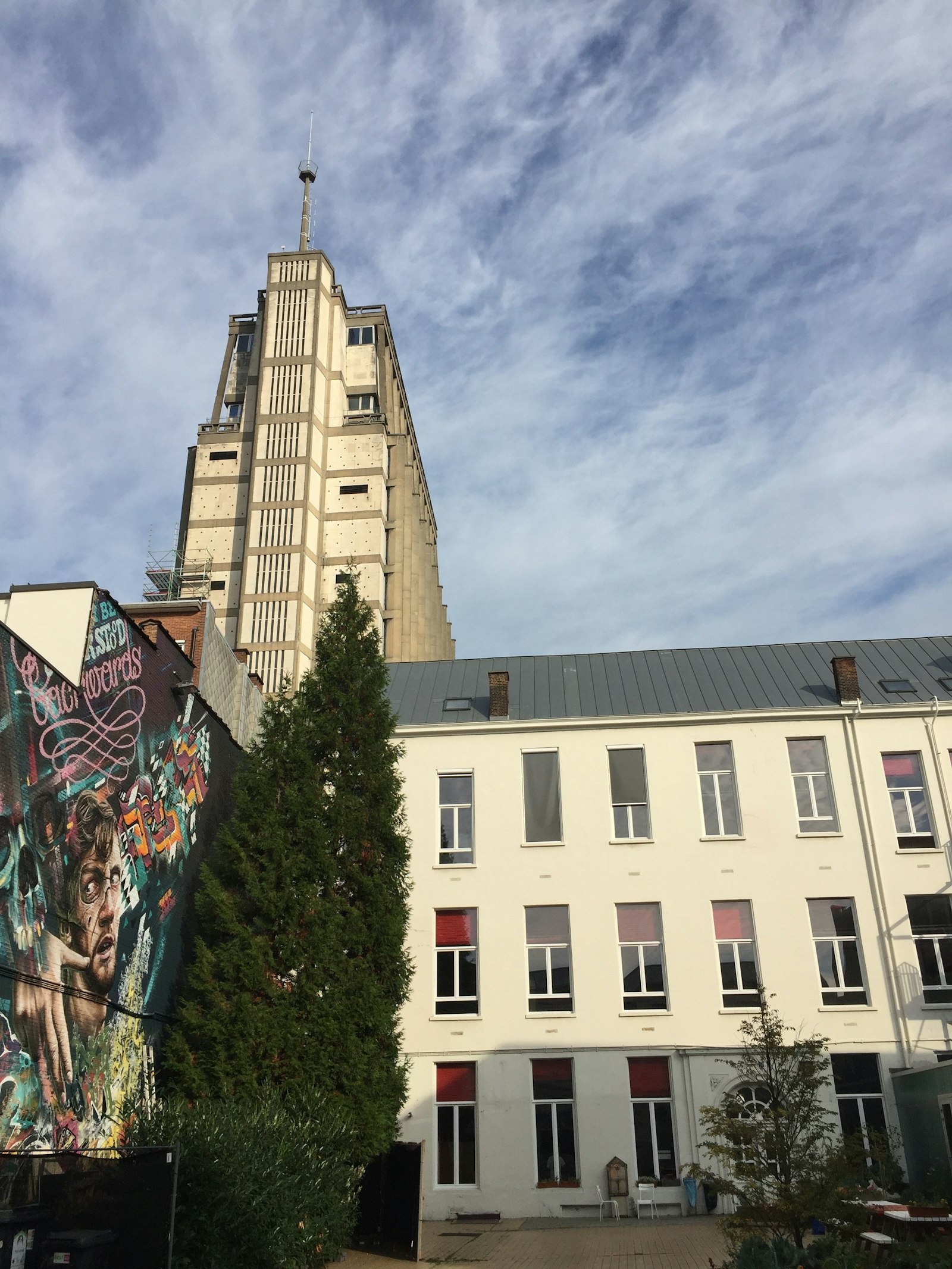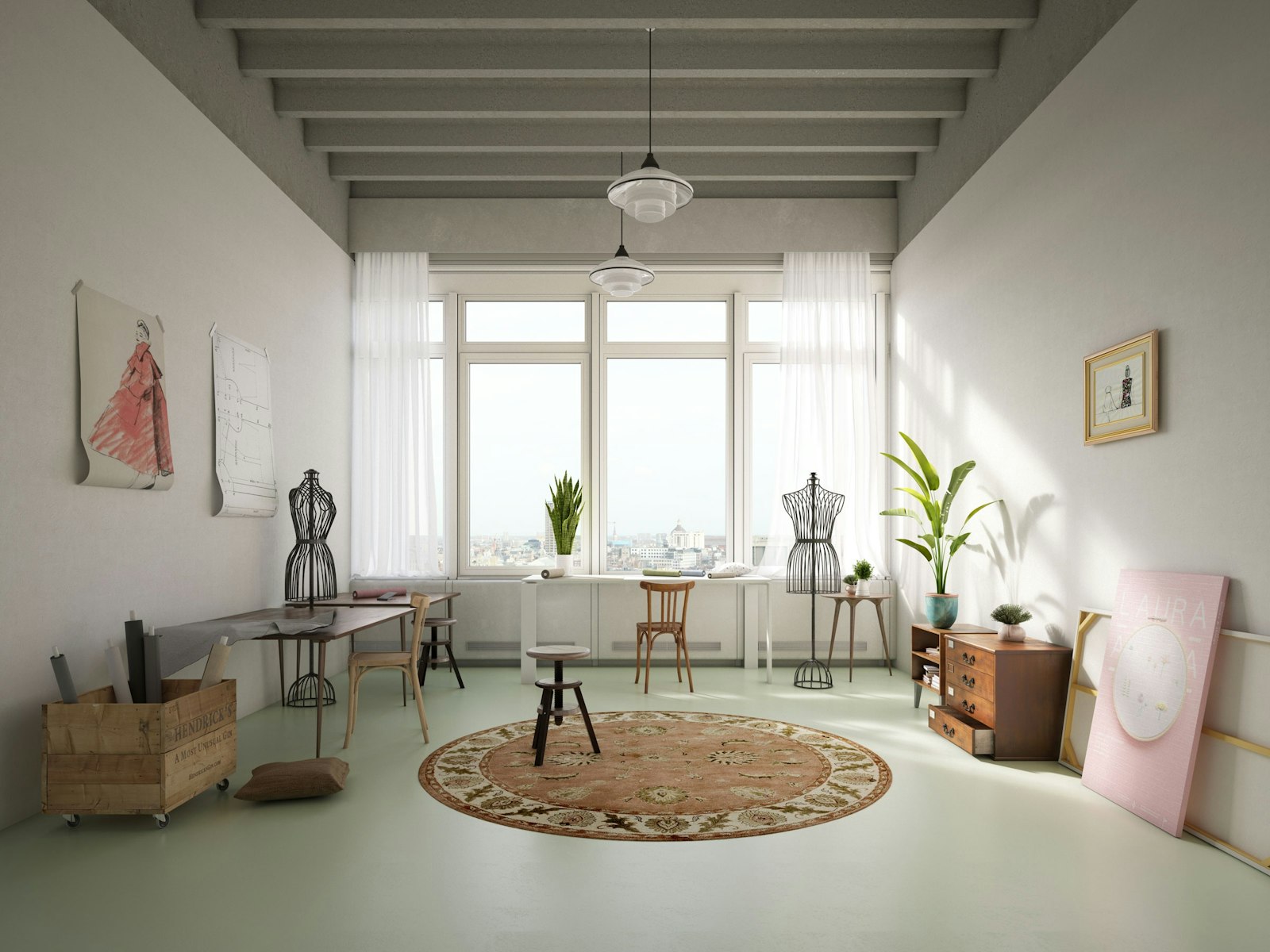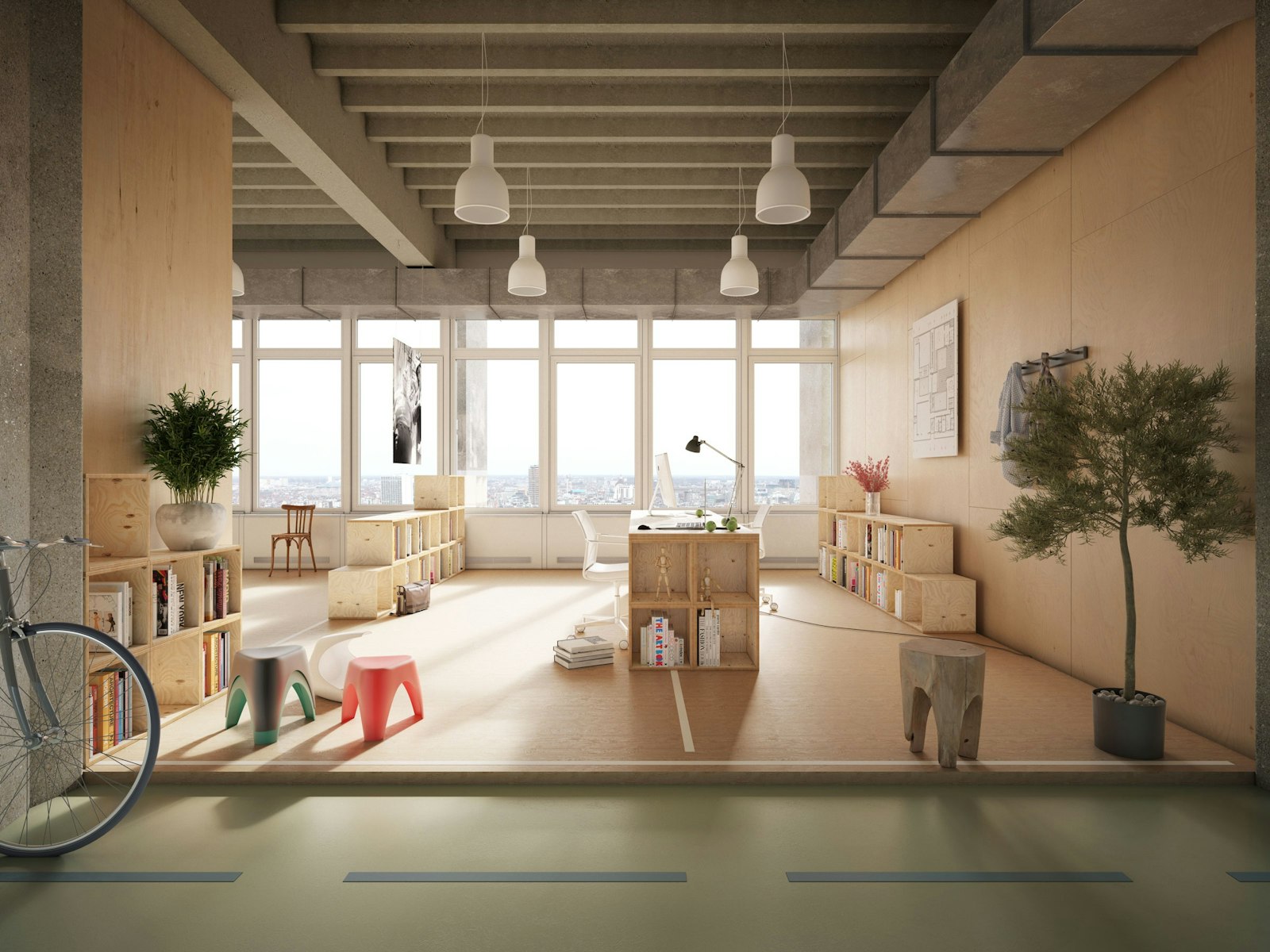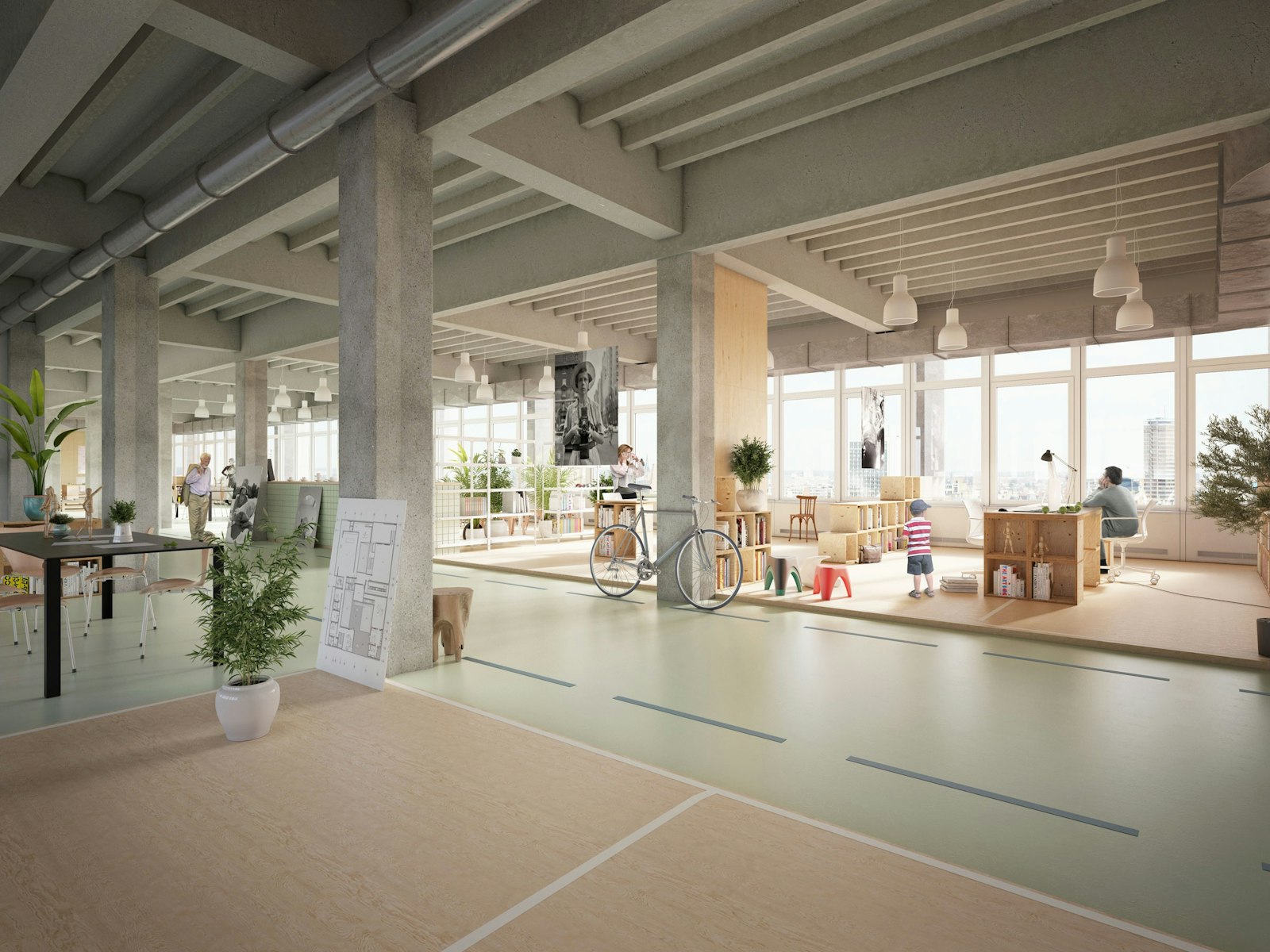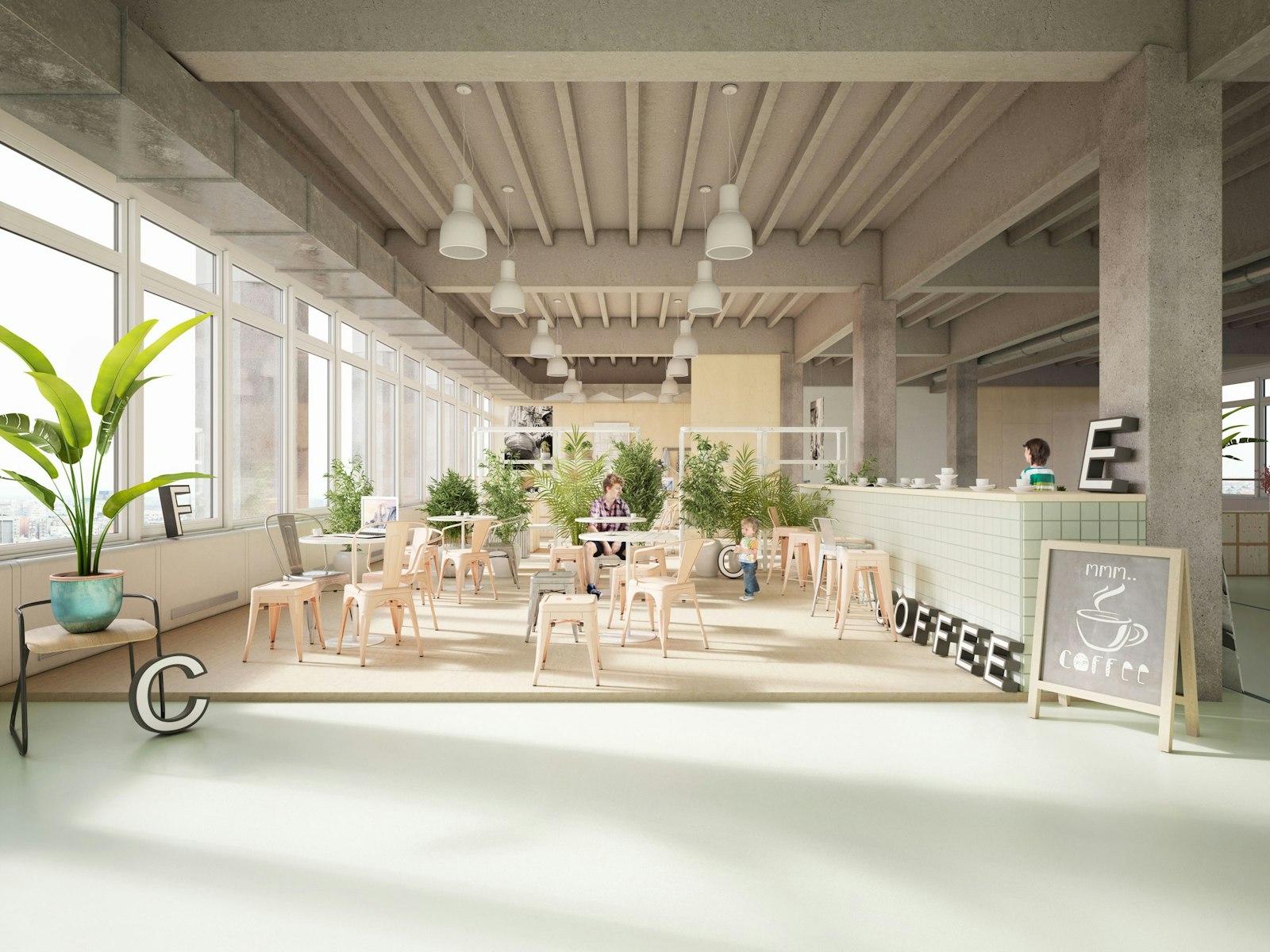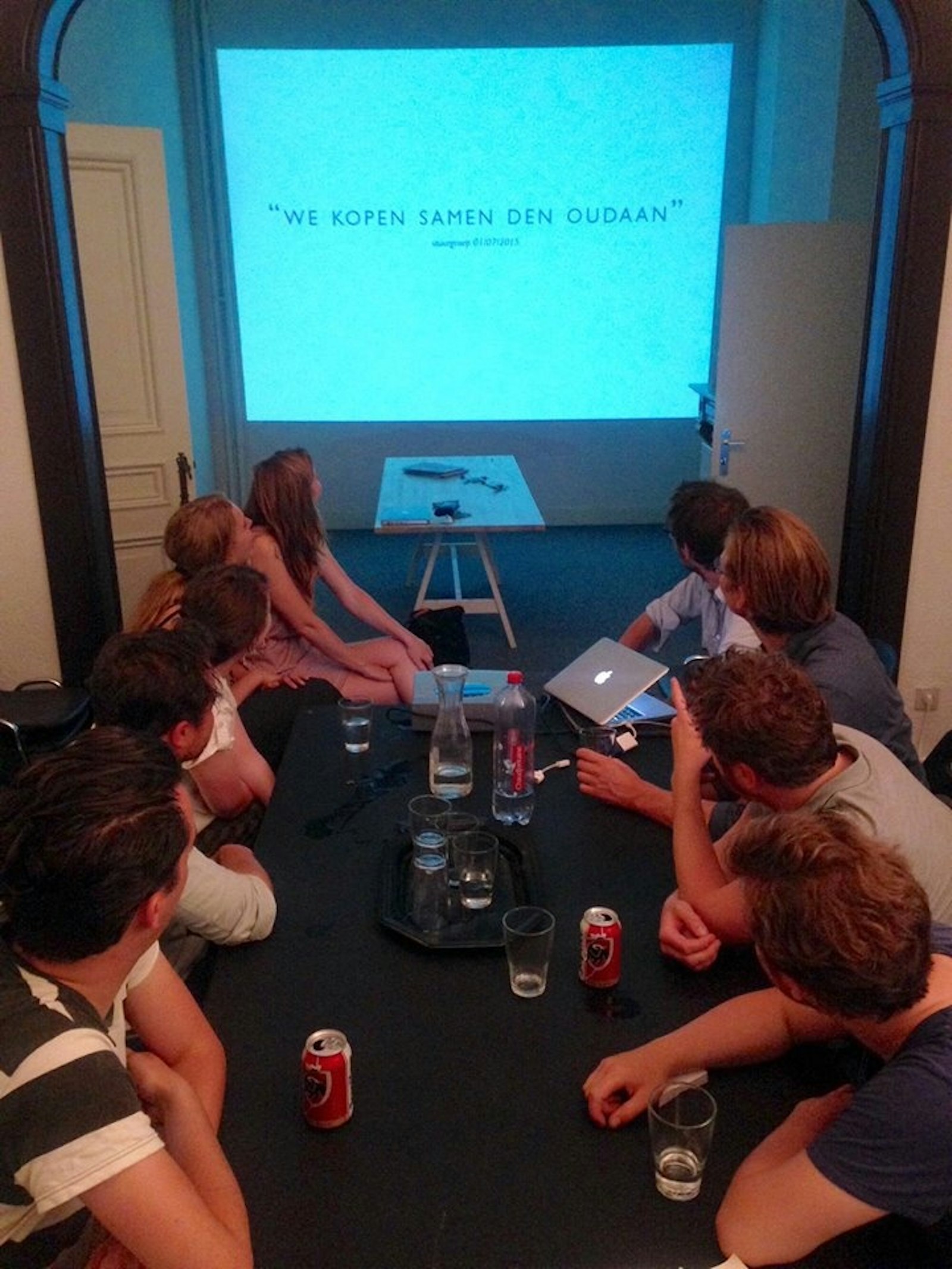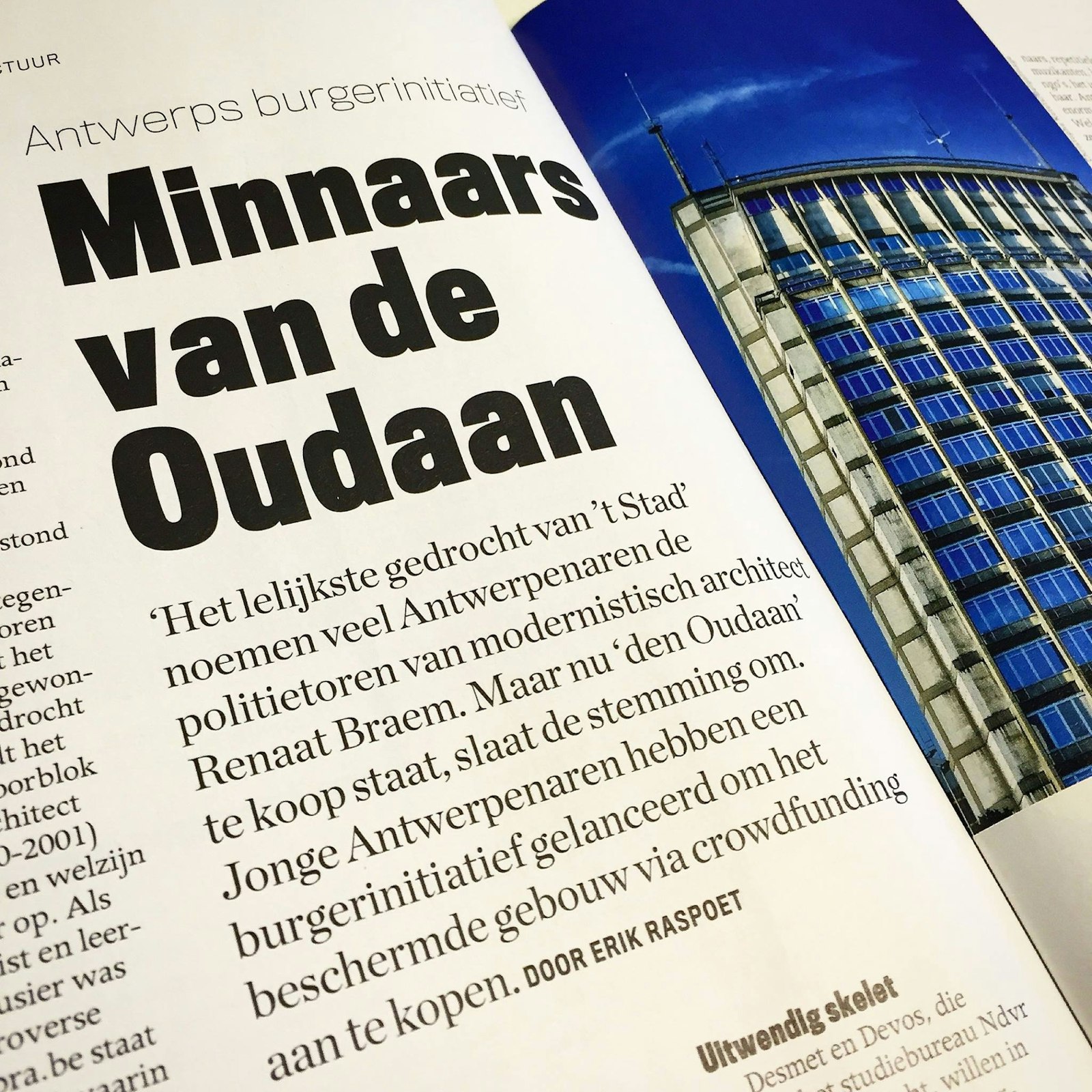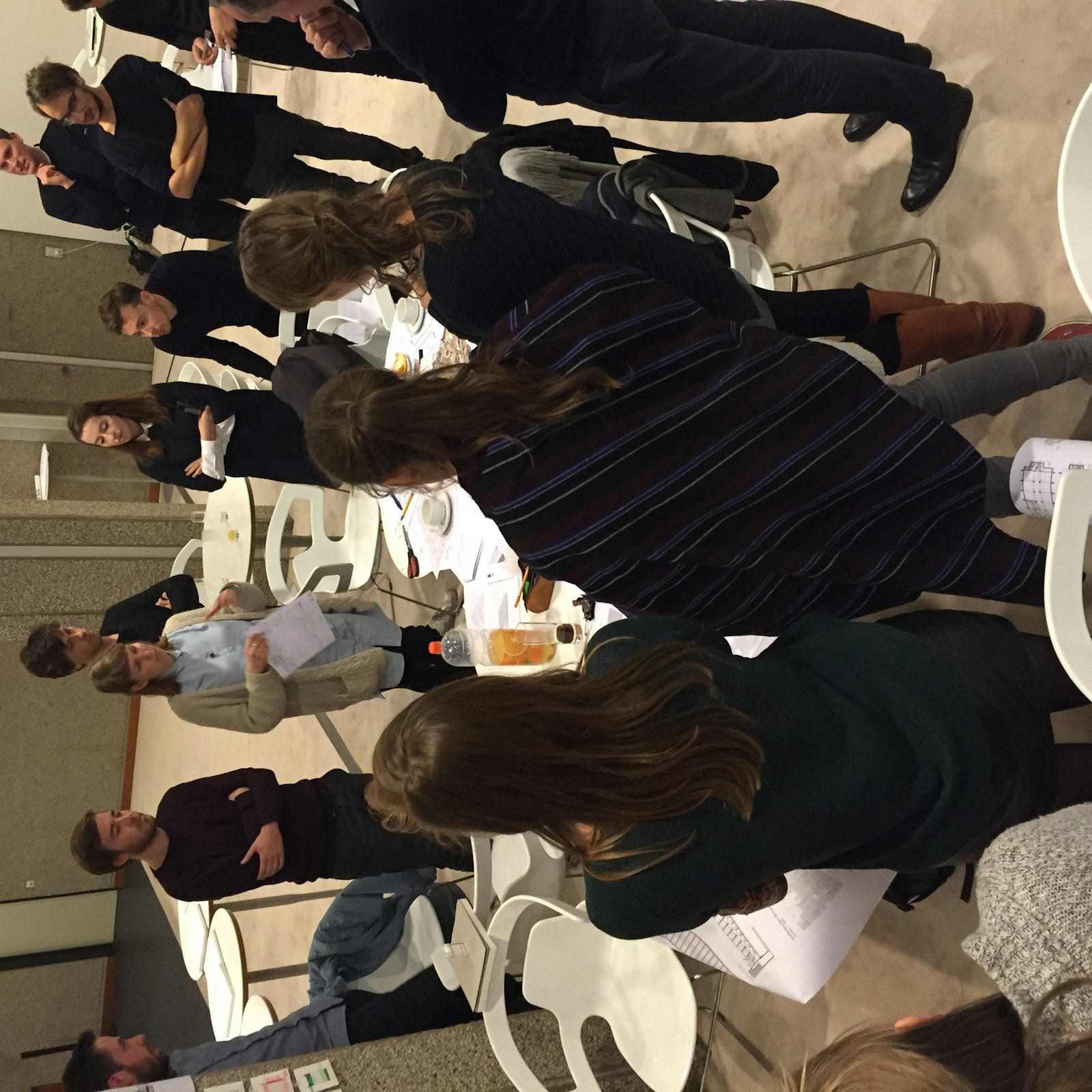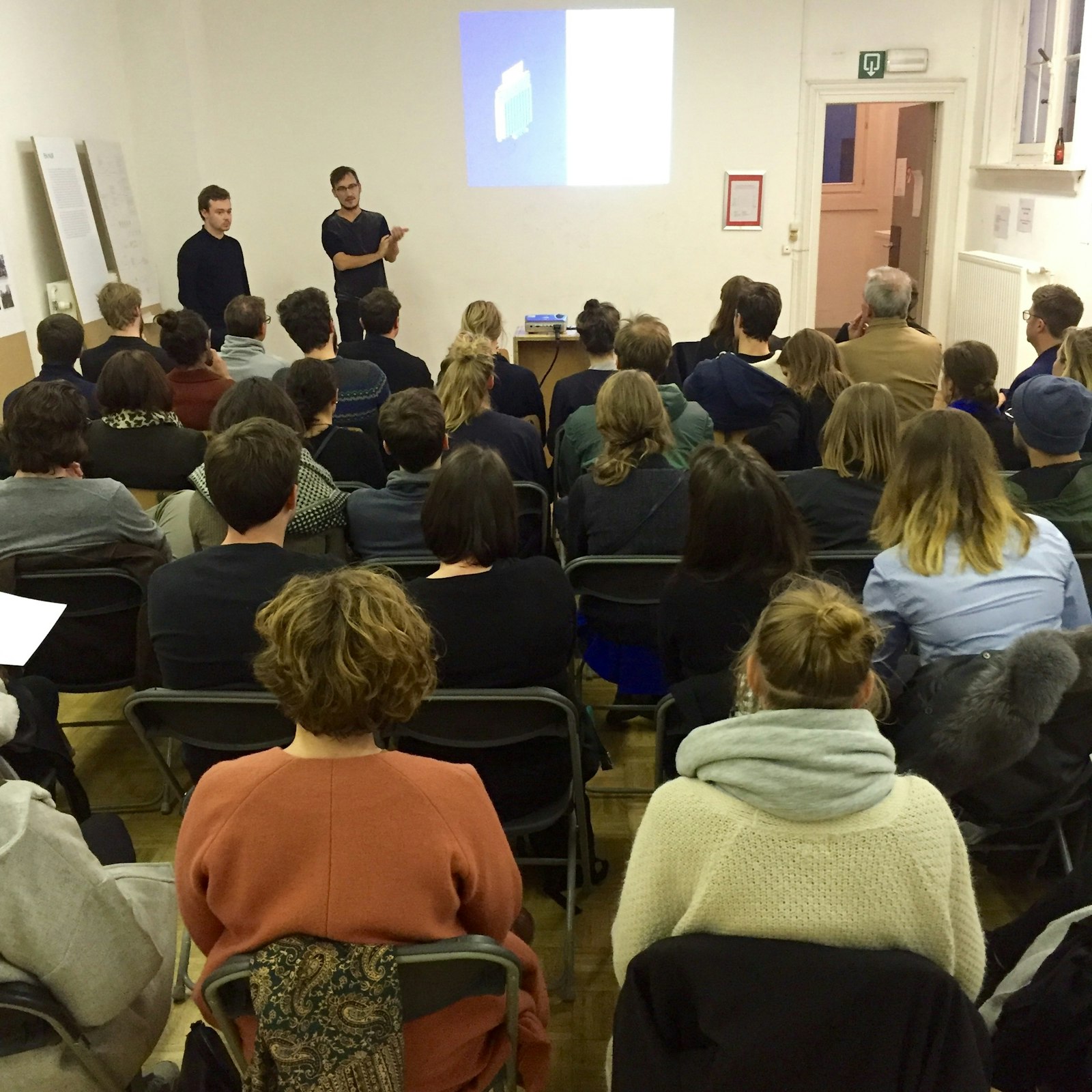de Velde
We kopen samen den Oudaan
In spring 2016, the We kopen samen den Oudaan (Buying Den Oudaan Together) collective launched its campaign of the same name. They were well on the way to success until shortly before the sale, when the minimum price rose sharply and they were no longer able to compete.
In spring 2016, the We kopen samen den Oudaan (Buying Den Oudaan Together) collective launched its campaign of the same name. They were well on the way to success until shortly before the sale, when the minimum price rose sharply and they were no longer able to compete.
Den Oudaan was developed as a civic core for the city of Antwerp by architect Renaat Braem, and was designed as one of the first inner-city regeneration projects: it comprised an administrative centre for the city’s various departments within a complex of public buildings, and a square which opened up the entire area. This public function has gradually been eroded and the blocks are now used solely as the Antwerp police headquarters, fenced off and offering only limited public access. The sale by the city (AG Vespa) could have brought about change here.
The collective wanted to breathe new life into Braem’s utopian towers, and use them as a lever for sparking fresh debate about new forms of cooperative development, co-financing and shared use of space. The mass reactions, spontaneous offers from interested parties and the intense media attention just go to show that there is support for an exercise in dialogue with the broader public.
The initiative demonstrates that these sorts of buildings can no longer be developed for a single purpose. Den Oudaan is being sold via sealed bids, a virtually closed process and conventional form of development involving little public debate or voice and little room for innovation and design research. Instead of developing and selling ‘floor-by-floor’, there should be room for innovative functions and responses to be provided to the city’s changing needs and growing demand for new types of space.
The collective is calling for a more transparent development process offering added social value.
